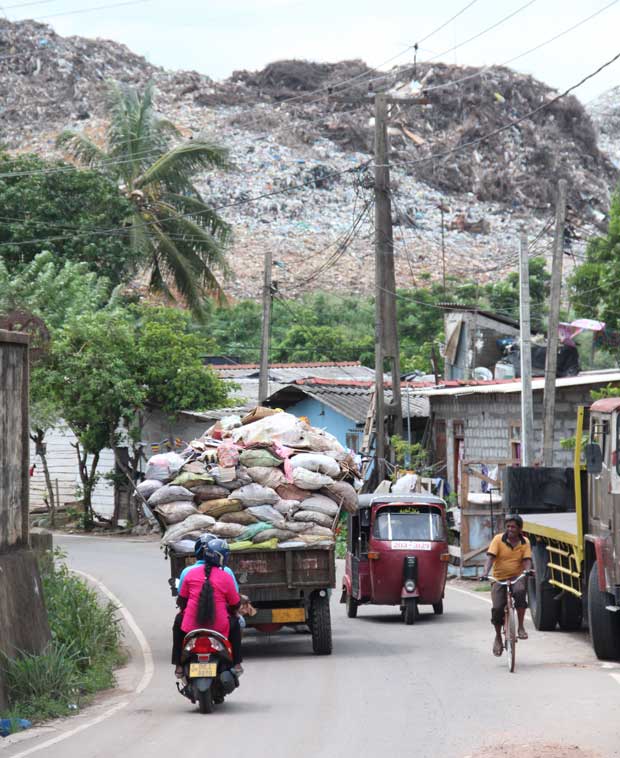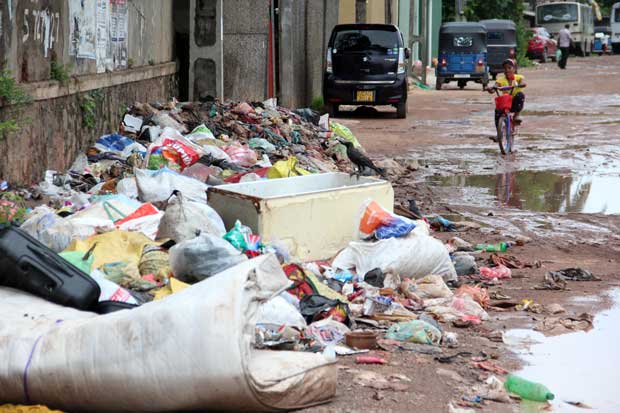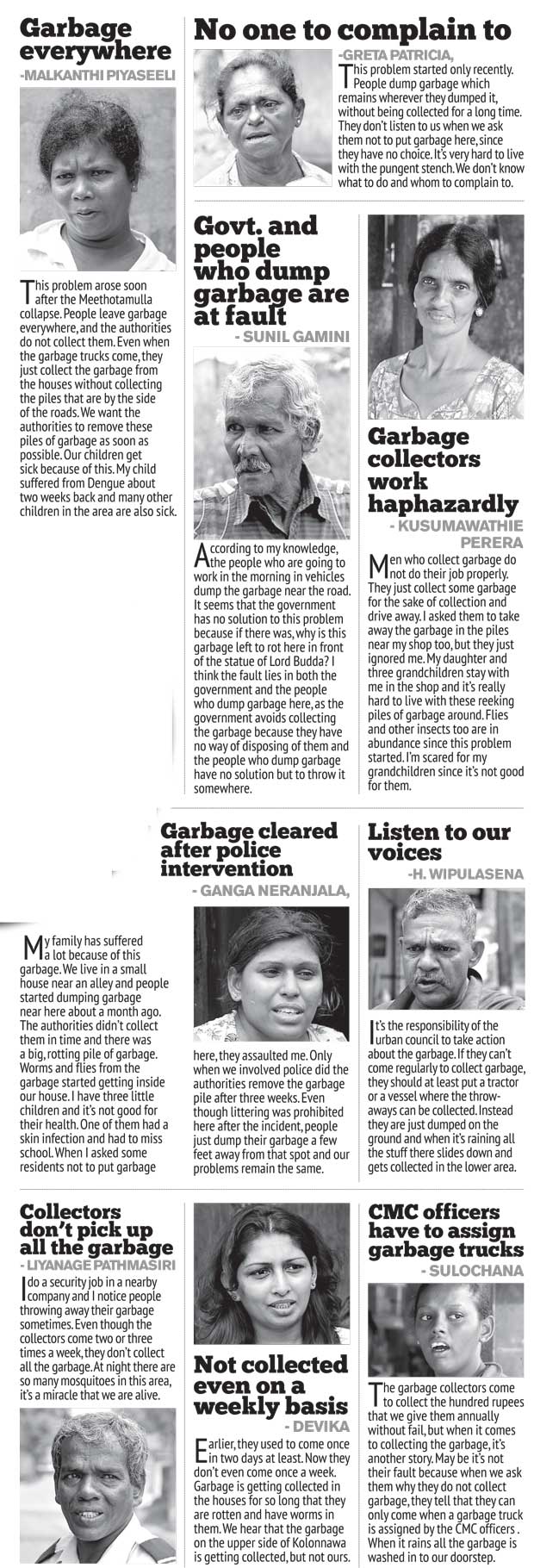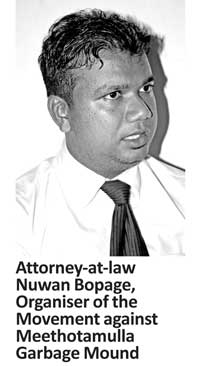Reply To:
Name - Reply Comment

 It has been nearly two months since the tremors of the Meethotamulla garbage dump collapse in Kolonnawa shook the citizens of the entire country. As a bitter aftertaste of the unfortunate tragedy lingers, fingers are still being pointed left and right. This article however is not about the present situation of the Meethotamulla garbage dump, though ironically, both the circumstances of ‘Meethotamulla’ and ‘garbage’ are part and parcel of it.Even after claiming more than thirty lives of their loved ones and sending hundreds away from their houses, it looks like garbage has not yet finished unleashing it’s fury on the Kolonnawa residents.
It has been nearly two months since the tremors of the Meethotamulla garbage dump collapse in Kolonnawa shook the citizens of the entire country. As a bitter aftertaste of the unfortunate tragedy lingers, fingers are still being pointed left and right. This article however is not about the present situation of the Meethotamulla garbage dump, though ironically, both the circumstances of ‘Meethotamulla’ and ‘garbage’ are part and parcel of it.Even after claiming more than thirty lives of their loved ones and sending hundreds away from their houses, it looks like garbage has not yet finished unleashing it’s fury on the Kolonnawa residents.
When visited the Meethotamulla, Kolonnawa area during the morning hours of June 1, apart from the huge centrepiece that is the Meethotamulla garbage dump towering over the area, we could observe multiple smaller, (though it is a matter of opinion) piles of garbage all over the place, obstructing the road and clearly disturbing the residences, even though we were informed that the garbage collecting trucks have come and gone a few hours prior to our visit.
The following are some of the comments we gathered from the residents around Meethotamulla, speaking of this recent development.


“Garbage is not being collected properly in multiple sites in the Kolonnawa area. This is due to the inefficiency of the Kolonnawa Urban Council. They should adapt the methods that other areas of Colombo district are using to dispose of their garbage. Daily garbage collected in Kolonnawa is usually around fifteen to twenty tons. This sum is negligible when compared to the thousand and two hundred tons of garbage that is produced from other districts of Colombo,” said Mr.Bopage.

As Mr. Bopage says, If there is no place to dump garbage, it is the responsibility of the government officials to get together and make new policies on garbage. “It is disappointing that even though nearly two months has passed since the Meethotamulla tragedy, not once have all the responsible authorities sat at one table and discussed the issues, to come into a sustainable solution about this issue.”
He also spoke of recycling, saying that after the Meethotamulla incident there was a lot of talk from the government about segregating the garbage before disposing of it and recycling what was possible. But according to Bopage, it has only been limited to talk, while no initiative has been taken as yet, to educate residents of Kolonnawa about separating garbage.
“Actually, Kolonnawa had a pretty good mechanism for taking care of it’s own garbage. A part of the ‘Pilisaru’ project, the recycling centre which functioned well until three years ago, was swallowed up by the infamous garbage dump by falling onto the roof of it. No authority is still interested in repairing it.”
His next words add a new, possibly ominous twist to a story that was already murky. “We have information that make us suspect this new development of not collecting garbage is part of a conspiracy to restart dumping garbage into another area of Meethotamulla, namely ‘101 Waththa’, diverting attention and claiming that there is no other place to dump garbage. We’d like to warn the authorities that we remain alert and we’ll never allow Meethotamulla to be used as a garbage dump again,” he concludes.
So, who exactly is at fault here? The officials of the urban council for not collecting the garbage, letting it fester in one place for prolonged periods of time? Or the citizens whose solution for their garbage problem to sneakily dump their rotting bags of garbage in front of someone else’s house or workplace and, conveniently walking away, forgetting that they are also live human beings like themselves? Or should the blame be shared?
Our readers will serve as the jury.
Meanwhile, we would like to assert that it is the responsibility of the relevant officials to consider the plight of these citizens, who for years have been suffering because of garbage that was not even theirs, and to take necessary steps to improve their quality of life.